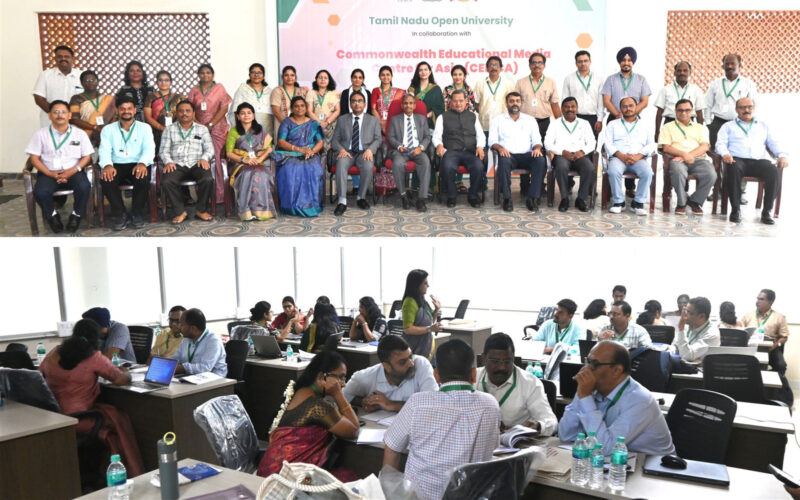
Thirty faculty members from 14 open universities across India have been trained in the design and implementation of micro-credentials following a three-day workshop hosted by the Commonwealth Educational Media Centre for Asia (CEMCA), the Commonwealth of Learning’s (COL) regional centre, and Tamil Nadu Open University (TNOU).
The workshop, titled ‘Micro-credentials: Introduction and Best Practices for Effective Design,’ equipped participants with the knowledge and skills to develop flexible, industry-aligned learning experiences to enhance student employability and support lifelong learning in the rapidly evolving educational landscape.
In her keynote address, Dr Neena Pahuja, Executive Member of the National Council for Vocational Education and Training, discussed the introduction of micro-credentials by the Council to address modern demands for specific and immediately applicable knowledge. She stated that the recent National Credit Framework allows up to 50 per cent of a student’s credits to come from skilling environments, integrating practical skills with formal education.
Professor Michael Sankey from Charles Darwin University, Australia, via a virtual presentation, provided an international perspective on micro-credentials, discussing their evolution and current status in Australia. He highlighted that micro-credentials have evolved from digital certificates representing specific skills to include various formats like badges and mini-degrees. In Australia, they must meet specific criteria, such as clear learning outcomes, to ensure quality and credibility.
Dr B. Shadrach, Director of CEMCA, outlined the workshop’s objectives regarding the ongoing reforms through the National Education Policy 2020. He said, “To stay competitive and credible in this new environment, open universities must enhance their curriculum quality, delivery methods, and learner support services to ensure youth employability.” He then underscored the practicality of adopting micro-credentials as a crucial strategy for addressing industry needs and closing the skills gap, explaining that these short stackable learning experiences, aligned with national standards, offer a flexible and credible alternative to traditional qualifications.


